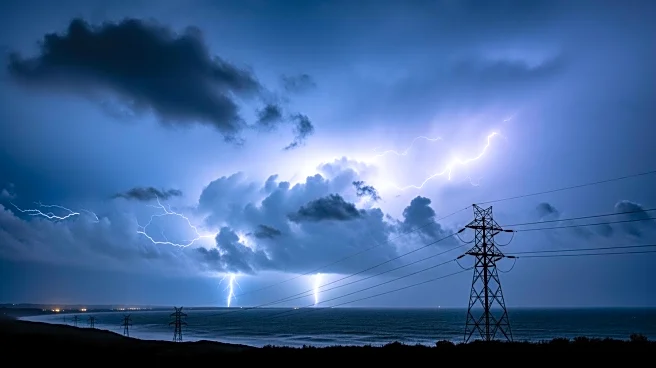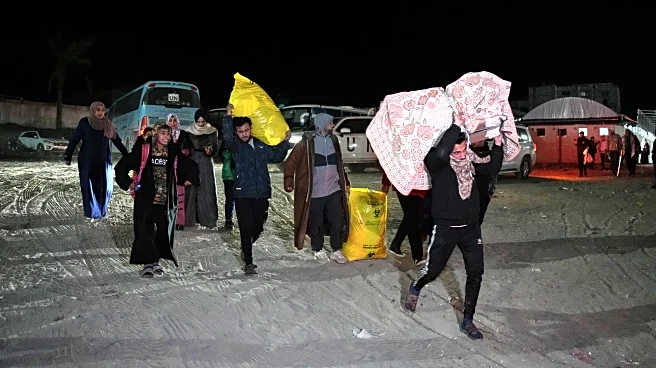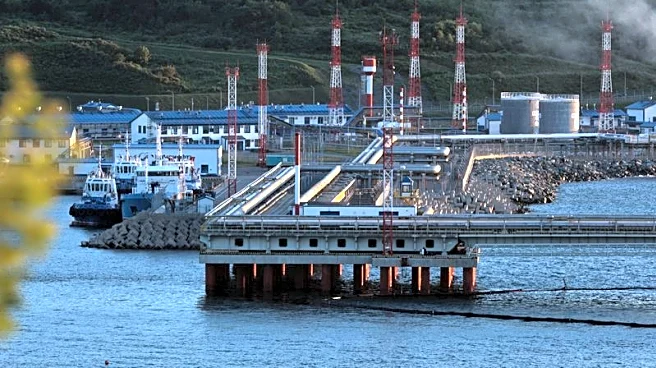What's Happening?
Hurricane Melissa, a category 5 storm, struck Jamaica on October 28, 2025, leading to widespread power outages that persist over two weeks later. The Visible Infrared Imaging Radiometer Suite (VIIRS) aboard the NOAA-21 platform captured nighttime images
showing significant areas still without power. The Black Marble Nighttime Blue/Yellow Composite, a false-color scheme, illustrates the impact of the hurricane by comparing images from October 19 and November 13, highlighting the ongoing lack of electricity in smaller inland areas. This data is part of NASA's efforts to visualize real-time changes in emitted light due to disasters and other factors.
Why It's Important?
The prolonged power outages in Jamaica underscore the severe impact of Hurricane Melissa on the island's infrastructure and daily life. The inability to restore power quickly affects economic activities, healthcare services, and overall public safety. This situation highlights the vulnerability of island nations to extreme weather events, exacerbated by climate change. The data provided by NASA's VIIRS instrument is crucial for disaster response and recovery planning, offering insights into the scale of the impact and aiding in resource allocation for affected areas.
What's Next?
Efforts to restore power in Jamaica are ongoing, with local authorities and international aid organizations working to address the infrastructure damage caused by Hurricane Melissa. The data from NASA's VIIRS instrument will continue to be used to monitor recovery progress and guide future disaster preparedness strategies. As climate change increases the frequency and intensity of hurricanes, there is a growing need for resilient infrastructure and effective emergency response systems in vulnerable regions.
Beyond the Headlines
The situation in Jamaica highlights broader issues related to climate resilience and the need for sustainable development practices. The reliance on real-time satellite imagery for disaster management reflects advancements in technology that can significantly improve response efforts. Additionally, the ethical implications of climate change-induced disasters call for increased international cooperation and support for affected regions.
















